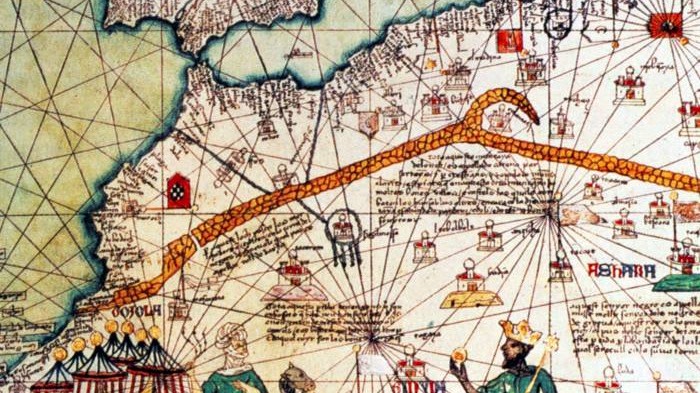IB DP History Class: How Africa made the modern world

Roula Khalaf, Editor of the FT, selects her favourite stories in this weekly newsletter.
This article picked by a teacher with suggested questions is part of the Financial Times free schools access programme. Details/registration here.
Specification Origins of industrialisation
Connections with the DP World history topic 7: Origins, development and impact of industrialisation (1750—2005) — the origins of industrialisation
Key terms and ideas Revisionist, Perspective, Erasure, Industrialisation
Click to read the article below and then answer the questions:
How Africa made the modern world
This is a review by the Pulitzer Prize winner Dele Olojebe of ‘Born in Blackness’, the new book by the prolific writer and historian Howard French. The book presents the thesis that “Africa was not at all peripheral to, but played a central role in, the emergence of the Age of Discovery, the rise of plantation slavery and the staggering wealth generated from sugar, cotton and other cash crops, which fed the Industrial Revolution.”
For DP History teachers, this would be an excellent resource for teaching World History Topic 7, on the origins of industrialisation. It is useful, because it is a ‘revisionist’ perspective on this popular topic. It will challenge your students thinking about this complex topic, by putting Africa and Africans at the very centre of the narrative.
As quoted in the article, French writes that the book seeks nothing less than a reversal of the “diminishment, trivialisation and erasure” of Africans from history. It could be very revealing to ask students to reflect on how this article contrasts with what they learn about the origins of industrialisation from their textbook, for instance.
Why do you think French means when he writes that “the most important site of erasure, by far, has been the minds of people in the rich world “?
How did Africa play a central role in the origins of industrialisation?
To what extent does this article contrast with what you learn about the origins of industrialisation in your textbook?
Ned Riley, historyrising.net
Comments